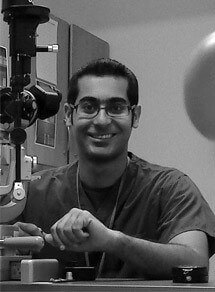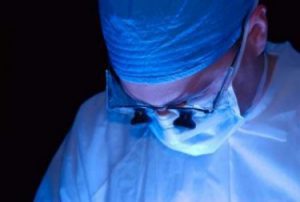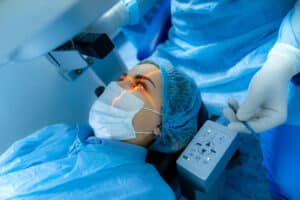Specialised Eye Surgery in Devon
Utilising cutting-edge technology at the forefront of the United Kingdom, our esteemed ZEISS Cataract Suite proudly stands as a pioneering facility exclusively dedicated to the meticulous care and eradication of cataracts. This unparalleled technological advancement empowers our skilled surgeons to execute expedient and precise intraocular lens (IOL) implantation.
In addition to our unwavering focus on cataract eye surgery, The Medical Eye Clinic also extends its expertise to encompass the comprehensive treatment of various ocular ailments such as glaucoma and age-related macula degeneration. Throughout the entire process, from initial consultation to the culmination of the procedure, we are steadfast in our commitment to ensure an all-encompassing, exceptional service of the utmost quality.
The Medical Eye Clinic Offers Expert Eye Surgery
At The Medical Eye Clinic Exeter, we recognise the profound impact that clear vision can have on one’s overall well-being. Our understanding of the importance of sight allows us to fully appreciate the breathtaking world around us, with its vibrant colours and captivating beauty. We are acutely aware of the significance of our vision, particularly in the face of any visual impairment.
Dedicated to enhancing eye care in the Devon region, our esteemed eye clinic brings together a team of experts, including highly skilled ophthalmologists and optometrists. Through collaboration with the esteemed Bill Opticians, one of the most respected optician chains in the Southwest, The Medical Eye Clinic Exeter is committed to providing exceptional and cutting-edge eye care services.
Whether you require expert-led treatments and surgeries, advanced eye examinations, contact lenses, or new glasses, we are here to cater to your needs with the utmost professionalism and expertise. What distinguishes us is our unique approach, which encompasses a comprehensive range of eye professionals all conveniently located under one roof.
This ensures a seamless and enhanced experience for our patients, with a strong emphasis on personalised customer care and exceptional clinical outcomes. By utilising state-of-the-art technology and diagnostic equipment, we guarantee thorough and precise eye examinations, as well as specialised procedures tailored to individual needs.
Our Eye Surgeries at The Medical Eye Clinic Exeter
Our cutting-edge ZEISS Cataract Suite, located in the United Kingdom, stands as an unparalleled facility dedicated solely to the advanced treatment and eradication of cataracts. With a focus on utilising state-of-the-art technology, our highly skilled surgeons possess the ability to effortlessly and accurately implant intraocular lenses (IOL) with remarkable speed.
Beyond our expertise in cataract eye surgery, our capabilities extend to addressing a wide range of eye conditions, encompassing glaucoma and age-related macular degeneration. From the moment you enter our clinic for your initial consultation until the successful completion of your procedure, our unwavering commitment lies in providing a comprehensive and superior service that exceeds all expectations in terms of thoroughness.
- Cataracts
- Diabetic Macular Oedema
- Glaucoma
- Wet Macular Degeneration
- Refractive Errors
Cataracts eye surgery
What are Cataracts?
Cataract eye surgery has become a widely accepted and effective solution for individuals struggling with the debilitating effects of cataracts. This condition is characterised by a cloudy appearance of the eye’s lens, which significantly impairs vision. Opting for private cataract eye surgery in Devon offers numerous benefits, attracting a substantial number of patients seeking a reliable remedy.
Cataracts, a prevalent ocular condition, cause the lens within the eye to undergo a cloudy transformation, severely impacting visual acuity. Normally, this transparent disc nestled within the eye maintains clarity, ensuring clear sight. However, the presence of cataracts obscures one’s visual perception. Over time, these opaque formations gradually expand, ultimately leading to complete blindness.
While cataracts generally affect both eyes, it is possible for them to develop in only one eye or for one eye to experience a higher prevalence. The root cause of cataracts lies in the deterioration of lens tissues, resulting in the formation of protein clusters that obstruct specific areas of the lens.
Cataract Treatment
At present, medical science has not yet discovered any effective treatments to delay or prevent the progression of cataracts. However, there is a practical option available: the replacement of the cloudy, natural lens with an artificial intraocular lens. By opting for this procedure, not only can individuals experience a significant improvement in their vision, but it can also greatly enhance their overall quality of life.
Cataract eye surgery is widely acknowledged as one of the most frequently performed, safest, and most successful surgical interventions worldwide. During the surgery, skilled professionals delicately remove the cloudy natural lens and make a small incision at the edge of the eye to accommodate the placement of the artificial intraocular lens.
Interestingly, this incision typically heals itself, eliminating the necessity for any stitches and facilitating a quick and hassle-free recovery. The entire procedure generally takes only 15 to 30 minutes, and with the administration of anaesthesia, patients remain completely pain-free throughout the process.
Diabetic Macular Eye Surgery
What is Diabetic Macular
The retina functions akin to a layer of film, delicately lining the rear of your eye. Within this intricate web of cells lies the key to sight. Of utmost significance is the central region known as the macula, a haven for vibrant hues and intricate details. Yet, diabetes holds the power to wreak havoc upon the delicate capillaries, even those of the esteemed macula.
In the face of relentless diabetic damage, these capillaries begin to falter, betraying their duty by allowing fluid and protein to seep out. Alas, this grievous betrayal takes its toll, rendering the macula swollen and heavy with an excess of moisture. Such a state is aptly termed diabetic macular oedema (DMO).
What Treatments are Available for DMO?
As DMO is effectively the manifestation of diabetes in the eye, the treatment for DMO includes optimising the following system risk factors:
- Improve the control of diabetes
- Improve the control of blood pressure
- Improve the control of ‘lipid profile’
In addition to these systemic measures, the following ‘eye-specific’ treatments can be used to treat DMO:
- Laser treatment. This is the conventional treatment for DMO, useful for treating DMO that does not directly involve the central vision. However, when DMO is very close to or involves the very centre of the macula, laser treatment can have the undesired effect of producing scarring in the central vision.
- Pharmacological treatment by intravitreal therapy This is when medication is injected into the main eye cavity, the vitreous, to treat DMO. This is the modern treatment that is preferable in most cases of DMO, especially when DMO is very close to or involves the central vision.
Glaucoma Eye Surgery
What is Glaucoma?
Glaucoma encompasses a variety of eye conditions characterised by elevated pressure within the eye. This increased intraocular pressure (IOP) can lead to optic nerve damage and the gradual loss of peripheral vision. Treatment for glaucoma varies depending on the specific type of condition.
The concerning aspect of glaucoma lies in its inconspicuous nature, as it typically lacks any noticeable pain or abnormalities in vision. Unfortunately, this means individuals may remain unaware of the problem until a substantial amount of peripheral vision has irreversibly vanished. The Medical Eye Clinic stands as a reputable establishment, housing a proficient team of ophthalmologists and optometrists who specialise in the comprehensive treatment of glaucoma.
Glaucoma Treatment
Effectively managing glaucoma is a lifelong commitment, necessitating regular monitoring and ongoing treatment. Here at the esteemed Medical Eye Clinic in Exeter, we proudly provide an array of specialised treatments, each meticulously crafted to effectively lower intraocular pressure (IOP), the sole approach to effectively managing this condition. Our dedicated glaucoma consultant will work closely with you to create a personalised treatment plan that caters specifically to your unique needs.
Glaucoma Eye Drops
In the past, glaucoma eye drops have typically been the primary option for treatment, proving to be highly effective. It is necessary to administer these drops regularly, often on a daily basis. However, not everyone feels comfortable with the daily routine of instilling eye drops, and certain medical conditions may make them unsuitable for glaucoma eye care drops. Thankfully, The Medical Eye Clinic offers alternative treatments alongside drops, ensuring comprehensive care for patients.
LASER TREATMENT: Selective Laser Trabeculoplasty, or SLT
SLT represents an uncomplicated and secure solution that effectively alleviates intraocular pressure in numerous individuals suffering from glaucoma. By directing a laser to the eye’s drainage structure, the pressure within the eye is significantly reduced. Prior to the procedure, a few drops of anesthesia are administered to ensure a comfortable experience.
It is important to note that driving immediately after the procedure is not advised; however, most individuals are able to resume driving the following day. In some cases, there may be a temporary sensitivity to light for approximately a week. In severe instances, treatment with anti-inflammatory drops may be necessary to alleviate this sensitivity. It is worth mentioning that around 3% of patients may experience a brief increase in pressure immediately after laser treatment, but this typically normalises shortly after.
SLT proves effective in approximately 80% of glaucoma cases. Although it may take a few weeks to witness the complete response to the treatment, the resulting intraocular pressure usually remains stable for several years, eliminating the need for constant eye drop administration. Regular appointments, utilising advanced technologies such as OCT, visual field analysis, and IOP measuring, will be scheduled to monitor and assess the treatment’s results.
If necessary, the procedure can be repeated to ensure optimal outcomes. It is crucial to remember that optometrists often detect the initial signs of glaucoma during routine eye examinations. We kindly invite you to contact our Exeter eye clinic to book your routine eye exam and address any concerns you may have.
Wet Macular Degeneration
What is the Macular?
The retina serves as a delicate membrane akin to a photographic film, delicately covering the posterior part of the eye. Within this intricate structure, a plethora of specialised cells harmoniously collaborate to facilitate vision. Notably, the macula, a highly significant region nestled within the retina, assumes responsibility for perceiving vibrant hues and intricate details, enabling us to truly appreciate the world around us.
What Treatment is Available?
The formation of an atypical network of blood vessels is heavily reliant on a signalling molecule called Vascular Endothelial Growth Factor (VEGF), which is responsible for the continuous growth and leakage of these vessels. To counteract this, scientists have devised anti-VEGF agents, which are specialised humanised antibodies specifically designed to target VEGF. These agents function by obstructing the impact of VEGF on the abnormal network of blood vessels in individuals suffering from wet age-related macular degeneration (AMD).
As a result, these vessels cease to leak and expand, effectively halting the progression of wet AMD. To treat wet macular degeneration, intravitreal therapy (IVT) becomes necessary. This therapy involves the repetitive administration of anti-VEGF agents through injections into the vitreous cavity, which is the primary hollow space within the eye located at the back. This process aims to desiccate the macula, a crucial area affected by wet AMD, and mitigate its adverse effects.
Refractive Errors Eye Surgery
What is Refractive Errors?
In individuals with a refractive error, the optics of the eye (the cornea and lens) cannot focus light from distant objects on the retina.
Common refractive errors include:
- Myopia: When the optics of the eye are too powerful for the length of the eyeball, one has myopia, or nearsightedness.
- Hyperopia: When the optics of the eye are not powerful enough for the length of the eyeball, one has hyperopia, or farsightedness.
- Astigmatism: when the optics of the eye are too powerful or too weak across one meridian. A person with astigmatism sees the lines of a particular orientation less clearly.
- Presbyopia: when the flexibility of the lens declines due to age, leading to difficulty in near vision.
What is Refractive Lens Exchange Surgery?
Refractive Lens Exchange (RLE) surgery is a surgical procedure designed to eliminate lens-related issues by extracting the natural lens and substituting it with a meticulously crafted artificial lens implant. The innovative lens implant is precisely tailored to address individual refractive errors, facilitating impeccable visual acuity at the preferred distance or distances, harmonising seamlessly with your unique lifestyle requirements.
Am I Suitable for Refractive Lens Exchange Surgery?
As individuals reach the age of 45–55, they may begin to experience a decline in the crystalline lens’s ability to accommodate, resulting in a reduced capability to focus on objects at different distances. During this period, refractive lens exchange surgery becomes a viable option to consider.
Additionally, if one already suffers from significant refractive errors like myopia, hyperopia, or astigmatism, refractive lens exchange surgery can be truly transformative. It has the potential to liberate individuals from their dependence on glasses or contact lenses, enabling them to embrace a lifestyle that is virtually free from these visual aids.
Benefits of private eye surgery in Devon
Enhanced Treatment Availability
Private healthcare facilities offer a substantial advantage when compared to the extensive wait times often faced within the National Health Service (NHS). Within the NHS, patients frequently endure lengthy periods of six months or more before their vital surgical procedures can be scheduled. On the other hand, our esteemed eye surgery centre, located in Devon, ensures prompt and efficient treatment, typically within a few weeks following the initial consultation. This ensures patients receive timely and essential care, eliminating any unnecessary delays.
The Significance of Prompt Treatment Access
The immediate availability of eye surgery is an urgent matter that cannot be overlooked for various compelling reasons. Foremost, the ability to access treatment without delay significantly diminishes the waiting period, which is crucial as extended waits can exacerbate a patient’s deteriorating eyesight, potentially impacting their overall quality of life. Mundane tasks like reading, driving, and recognising familiar faces can become increasingly burdensome and arduous.
Consequently, frustration ensues, leading to a greater reliance on others and a subsequent loss of personal independence. Moreover, untreated eye conditions can give rise to additional complications, such as persistent inflammation, glaucoma, or, in severe cases, complete loss of vision. Thus, the earlier patients can receive treatment, the lower the probability of complications arising, and the faster their normal visual capabilities can be restored.
Furthermore, expedient access to treatment also alleviates the anxiety and stress associated with waiting for a medical procedure, ultimately contributing to an enhanced state of mental well-being.
To embark on your journey towards private eye surgery in Devon, we highly encourage you to reach out to our dedicated team today. You have the option to either call our team at 01392 829436 or use our convenient online contact form.






